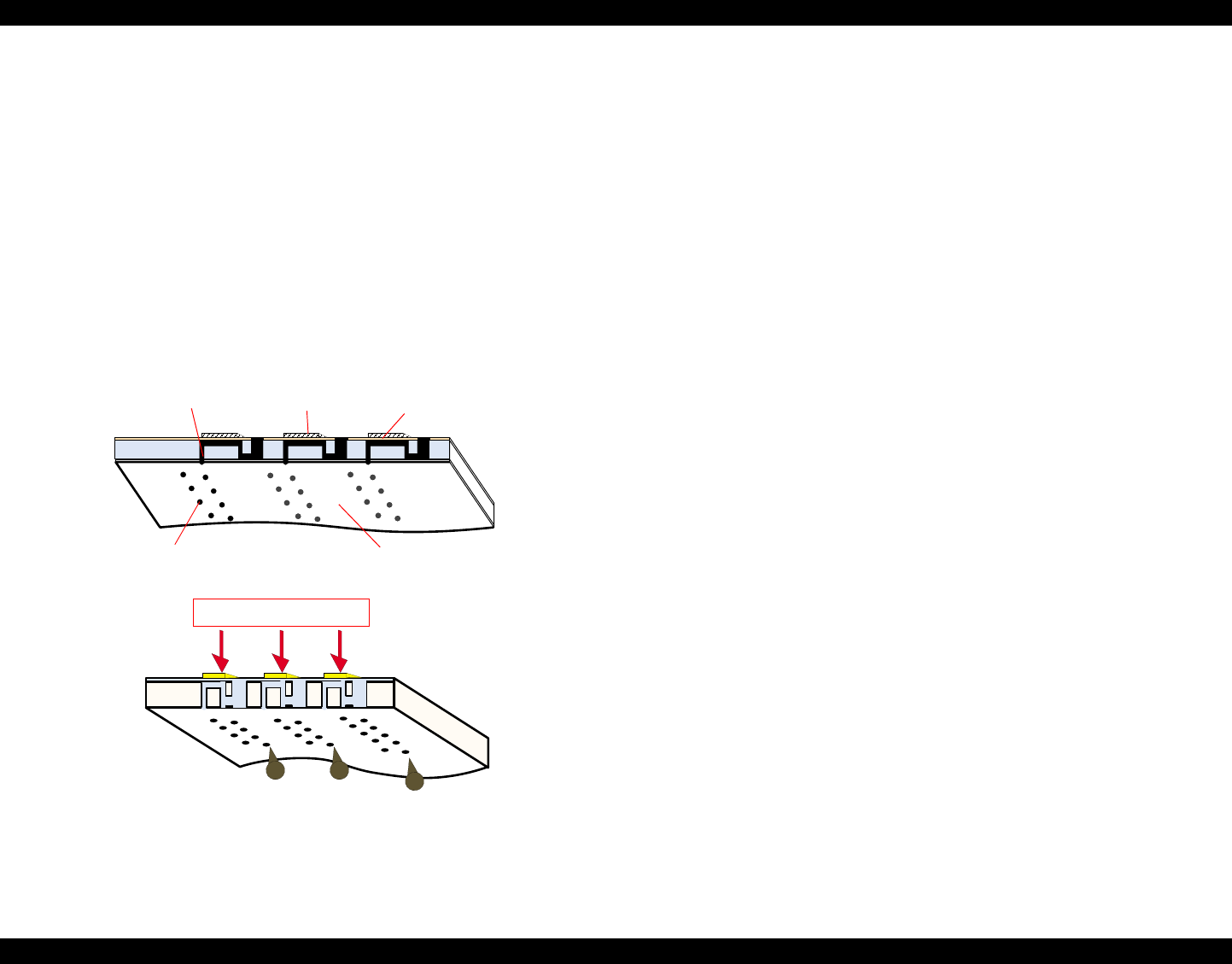
Stylus C40UX/C40SX/C20UX/C20SX Revision A
Operating Principles Overview 27
2.1.2.1 Printing Process
This section explains the process in which the printheads of On-Demand inkjet printers
eject ink from each nozzle.
1. Normal State:
When no printing signal is sent from PC, or no PZT drive voltage is applied, PZT
does not change shape, therefore PZT does not squeeze the cavity. Ink pressure
inside the cavity is kept normal. (Refer to Figure 2-3.)
2) Ejecting State:
When the print signal is output from the C413MAIN/B board, IC (Nozzle
Selector) located on the printhead unit latches data once by 1-byte unit. An
appropriate PZT latched by the nozzle selector is pushed into the cavity by the
common voltage applied from the main board. By this operation, ink stored in the
cavity spurts out from nozzles.(Refer to Figure 2.1.2.2.)
Figure 2-3. Printhead printing process
2.1.2.2 Printing Method
For print dot system, Stylus C40UX/C40SX/C20UX/C20SX has the following two
kinds of printing modes.
Multiple shot printing
Variable dot printing
The above two printing modes are automatically selected depending on the media and
the resolution setting of the printer driver. The following explains each printing mode.
Multiple shot printing
This printing mode is developed to improve the print quality on plain paper or
transparencies in low resolution. The multiple shot printing mode uses normal dot
and the number of dot shots varies from 1 shot to maximum 4 shots depending on
the print data to enable sharp image output even in a low resolution.
Variable dot printing
This printing mode is developed to improve the print quality on exclusive paper.
This mode is basically the same as variable dot printing mode used on other
products /; micro dot, middle dot, and large dot compose this mode. Print dot size
varies according to print data and this mode enables even sharper image output on
exclusive paper.
Ink Path
PZT
Ink Cavity
Nozzle
Nozzle plate
PZT drive voltage


















